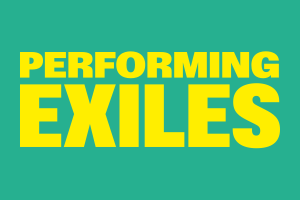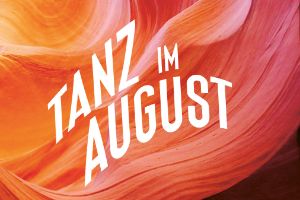
Ondřej Adámek © Astrid Ackermann
Ondřej Adámek
The Czech composer and conductor Ondřej Adámek is one of the most idiosyncratic individuals of his generation. Adámek was born in Prague in 1979 and initially studied composition at the city’s Music Academy with Marek Kopelent (from 1997) before continuing at the Paris Conservatoire (from 1999). In 2010, he followed an invitation by the Berlin DAAD artists’ programme to Berlin where he still lives. Intensive travel across Europe, Africa and Asia led to encounters with a broad range of musical cultures which had a substantially influence on the style of his own music. The influences of Persian qawwali music can be detected in “Whence Comes the Voice?” (2022), whereas Korean pansori song is the focal point of his work “Let me tell you a story” (2023).
Adámek’s solo concertos have been performeons to the use of traditional instruments: he created the ‘airmachine’, a combination between installation and music instrument, which was first employed in the work “Körper und Seele” at the Donaueschingen Music Festival in 2014. In the meantime, he has composed additional works for this apparatus consisting of rubber gloves, hooters, tubing and valves.
Most recently, Adámek has attracted attention with major music theatre works: his a cappella opera “Seven Stones” was premiered at the Festival Aix-en-Provence in 2018. The opera “INES”, performed in 2024 at Cologne Opera transformed the Orpheus myth into a post-nuclear dystopia. His opera “Unmögliche Verbindung” was developed in a collective creative process with Thomas Fiedler (director and librettist) and the Ensemble Modern which was directly involved with the structuring of the composition at its performance at the Bergenz Festival in 2024.
Ondřej Adámek’s compositions have received numerous prizes: the Prix de Bourges (IMEB, 2003), the Prix Métamorphoses (Belgium 2002, 2004), the Hungarian Radio Prize (2004), the Composition Prize from the Brandenburg Biennale (2006), the Prix Hervé-Dugardin (SACEM, 2009), the Grand Prix Tansman (Lodz 2010), the Prix George Enesco (SACEM, 2011) and the Composition Prize from the Csity of Stuttgart in 2018. Ondřej Adámek spent time in Rome thanks to scholarships from the Villa Medici (2014/15) and the Villa Massimo (2022/23). In his capacity as conductor, Adámek has worked with ensembles including the Deutsche Symphonie-Orchester Berlin, the RIAS Kammerchor, the Ensemble Musikfabrik, the Ensemble Modern, the Ensemble 2e2m, the chamber ensemble Neue Musik Berlin and the Oslo Sinfonietta. In 2018, Adámek founded the vocal ensemble N.E.S.E.V.E.N with which he has performed his own works and other compositions and developed interdisciplinary programmes. The name of the ensemble reflects its search for the natural aspects of the human voice and authenticity and accuracy of vocal expression: “Never Ending Searching for Exact Vocal Expression and Nuances”.
As of: February 2025
